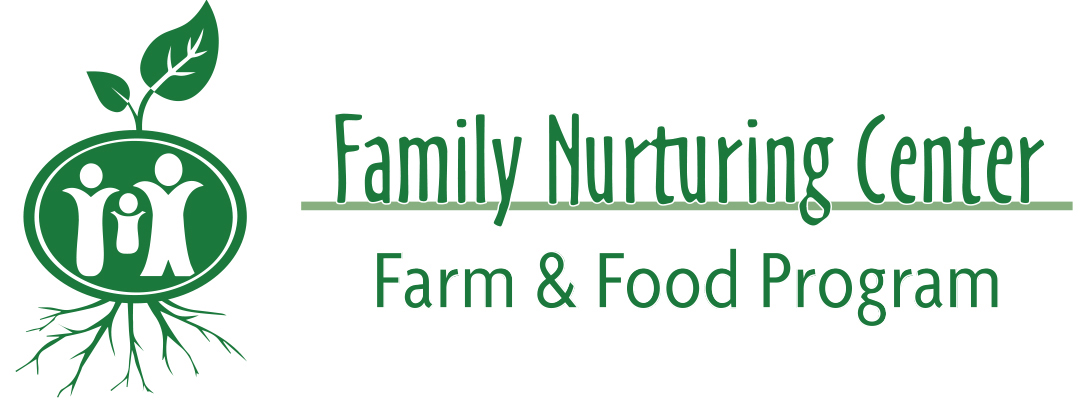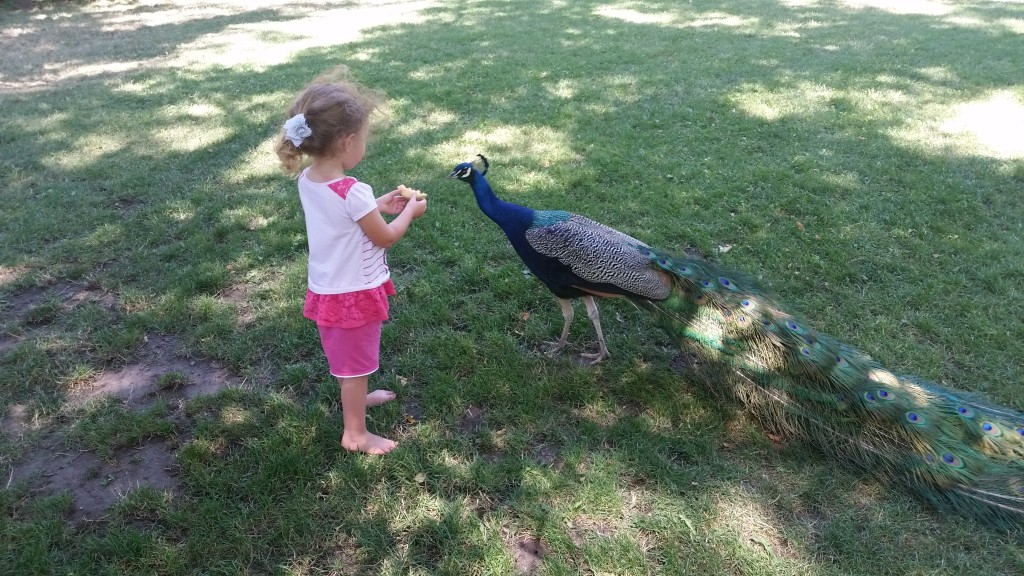WHAT WE DO
The Farm and Food Program welcomes families who have faced multiple challenges to participate in activities that support well-being. We facilitate therapeutic groups where families grow, prepare, and share healthy meals together while strengthening parent-child relationships.
Our goal is for families to be physically nourished so that parents and children can be fully present in relationship with one another. The Farm and Food Program has served hundreds of families since its creation in 2011.
HOW YOUR DONATION HELPS
The Farm and Food Program is funded through the generous contributions of local and regional foundations. These funds cover operational costs and allow for seasonal maintenance at our farm sites. We are fundraising to make infrastructural improvements that will increase the accessibility of our groups to families and improve our ability to process, store, and distribute produce. Specifically we are hoping to add the following to our farm sites:
Covered Outdoor Kitchen/Processing and Eating Area: This will provide space to prepare and share family meals, process produce, and hold groups in a shaded area during the summer months.
Children’s Garden, and Grape Arbor: This will provide space for parents and children to explore gardening activities together in a protected, raised-bed garden area.
Rain Gear, Boots, and Gloves: This helps to increase participation and the enjoyment of groups during the rainy season.
Groups We Offer
The Farm and Food Program offers five elective groups to families connected with the Family Nurturing Center. For some, walking out to the field and indulging in a cup of freshly steeped tea is a big leap into the realm of therapeutic horticulture. For others, several hours of physical exercise accompanied by a basket of fresh produce is more rewarding. Many parents make group a regular part of their weekly routine and contribute their knowledge, skills, and experience throughout the seasons. Several committed parents have evolved into roles as Peer Mentors who help facilitate groups and provide invaluable insight into ongoing program development.
Dads Farm Group meets weekly at Hanley Historic Farm. Participants use sustainable farming methods to maintain organic grow space at two farm sites. Parents bring home fresh produce, storage crops, and preserved food from our farms to supplement their family’s diets. Seasonal construction and maintenance projects provide creative outlets and opportunities for group problem solving. The inclusion of expressive arts activities such as painting, fiber arts, and traditional crafts further enhances the group experience.
Family Farm Group meets weekly at Hanley Historic Farm from Spring through Fall. Parents and their children work together on the farm with an emphasis on connecting with one another and with the natural environment through the shared experience of caring for plants and animals. Families care for our chickens, explore the farm, and participate in gardening activities in our greenhouse and children’s garden.
Family Food Group meets weekly at Hanley Historic Farm in the summer months and indoors at First Presbyterian Church during the winter months. This group provides an opportunity for families to come together to cook healthy meals and practice positive parenting skills as they sit down and eat together as a family. Food preparation emphasizes the use of bulk, whole grain foods, and fresh ingredients, with much of the produce coming straight from the field. Families who graduate from the Food Group are provided with needed kitchen amenities so they can prepare meals for their families at home.
Parent Education Group meets weekly in a private room at the public library. Parents contribute to discussion on topics that include mindful parenting, nurturing healthy family traditions, and the use of story and play as tools for teaching developmentally appropriate life skills. Parents access library resources, familiarize themselves with inter-library loan, and increase practical resource networks.
Making A Difference
Check out this report, a resource summarizing current findings that connects gardening with increased health and wellbeing!
Page 3 of this report states that involvement in gardening or community food-growing projects can:
- Contribute to improved social interactions and community cohesion.
- Reduce the occurrence of episodes of stress, and the severity of stress and associated depression.
- Reduce reliance on medication, self-harming behavior, and visits to psychiatric services, whilst also improving alertness, cognitive abilities and social skills.
- Provide productive manual activity and beneficial social interaction for people tackling drug and alcohol dependency.
Additional support for our approach includes the ACE study, www.acestudy.org, which indicates that nurturing healthy habits and relationships can alleviate the physical and emotional impacts of adverse life experiences; our primary intention is to facilitate experiences that promote wellbeing. Concretely, we address the issue of food security to reduce the level of anxiety parents experience as they provide for their families. Maslow’s hierarchy of needs has long identified the sustained satiation of hunger and thirst as a prerequisite for psychosocial development. Our goal is for families to be physically nourished so that parents and children can be present in relationship with each other.
Thank you to our Partners & Supporters
The Farm and Food Program collaborates with an amazing group of partners. OnTrack, Inc. and ACCESS are vital partners that help us provide these services to families in our community. The Family Nurturing Center collaborates with La Clinica, Jackson County Community Family Court, and Rogue Community Health to provide an integrated network of support services. Southern Oregon Historical Society graciously lets us use Hanley Historic Farm to grow food and hold our Family Food Groups, and the First Presbyterian Church of Medford generously provides use of their kitchen and dining hall to hold our Family Food Groups during the winter months. We would not be able to provide this program for our families without the generous financial support of the Leightman Maxey Foundation, Jackson Care Connect, SOELS/HUB, Cow Creek Band of the Umpqua Indian Tribe Foundation, the Carpenter Foundation, the Anna May Family Foundation, the Schwemm Family Foundation, the United Way, and many generous private contributions.

